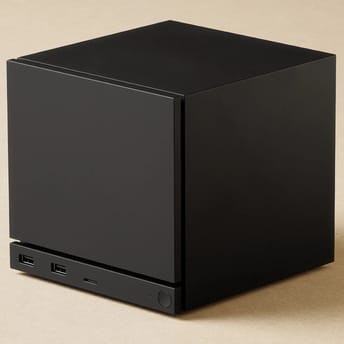Razer ID to Integrate World’s Biometric System for ‘Human-Only’ Gaming

|
|
Key points
- Razer and World Network announced a biometric verification system for gaming, using World ID’s iris-scanning technology.
- The system will integrate with Razer ID, offering a human authentication badge.
- World ID’s biometric data practices have faced regulatory scrutiny in multiple countries.
Razer and World Network, a company co-founded by OpenAI CEO Sam Altman, have announced a partnership introducing biometric verification to online gaming. The initiative, called “Razer ID Verified by World ID,” will allow players to verify their identity using World ID’s proof-of-human system, which relies on biometric iris scans. The goal, according to the companies, is to prevent AI-driven bots from interfering with multiplayer games and to create “human-only” gameplay modes.
The system will integrate with Razer’s existing Razer ID, giving verified users a human authentication badge. While Razer and World ID claim that this process does not track personal data, verification relies on the Orb device—hardware developed by Tools for Humanity, the company behind the Worldcoin cryptocurrency. World Network uses biometric scans for digital identity verification and has faced regulatory scrutiny for its handling of sensitive data.
World ID’s verification system does not require government-issued IDs but instead scans users’ irises to confirm their uniqueness. Razer and World Network state that this will remain an optional feature for now, though it remains unclear how developers will implement it in games. There is also no clarity on whether biometric verification could later expand beyond bot detection—potentially for tracking player behavior, targeted in-game purchases, or restricting access to certain features for non-verified users.
World ID and its parent company, Tools for Humanity, have faced multiple regulatory challenges due to concerns over biometric data collection. In Spain, the Data Protection Agency ordered World Network to delete all collected iris scan data, citing non-compliance with privacy laws. In Colombia, authorities accused World Network of violating data protection regulations, and in December 2024, the Bavarian State Office for Data Protection Supervision (BayLDA) ruled that its data practices did not comply with the European Union’s General Data Protection Regulation (GDPR), requiring the company to implement a compliant data deletion procedure and obtain explicit user consent. More recently, Brazil’s data protection authority has ordered Tools for Humanity to cease offering cryptocurrency or financial incentives in exchange for collecting biometric data from Brazilian citizens.
The announcement comes alongside a third-party survey commissioned by World Network, highlighting player frustrations with AI-driven bots in multiplayer games. According to the survey, 71% of players believe bots negatively impact competition, while 74% say they make games less enjoyable. Additionally, 75% of frequent gamers expressed interest in biometric verification as a way to combat bot interference.
Razer and World Network also claim that the system could help prevent banned players from returning under new accounts, reinforcing competitive integrity. However, neither company has confirmed when the system will launch or how widely it will be adopted by game developers.












